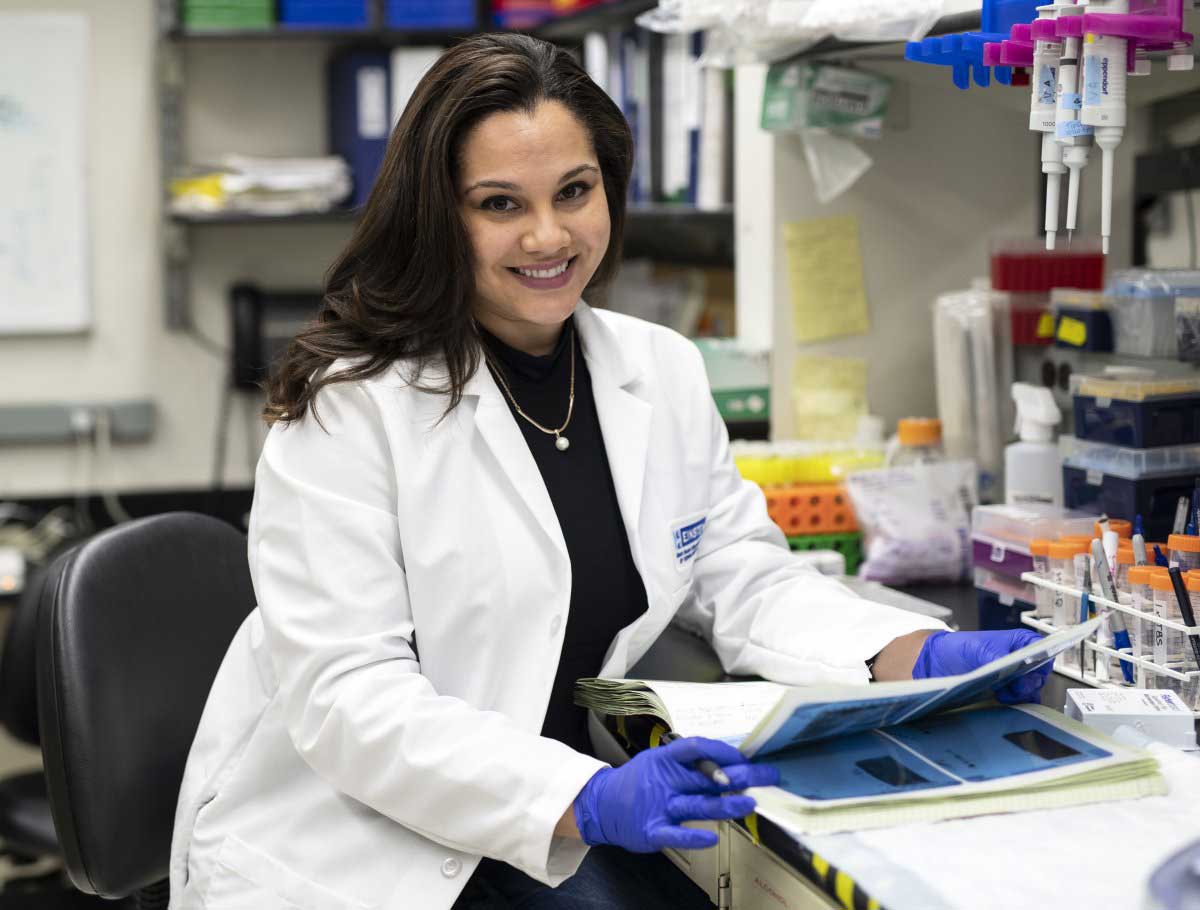By Jenna Bagcal
A $1.6 million grant to Queensborough Community College in Bayside from the National Institutes of Health will extend for another five years CUNY’s participation in a program that has helped hundreds of its students advance from associate degrees to baccalaureates in the sciences — and in some cases ultimately all the way to doctoral and medical degrees.
The grant was formed in partnership with Queens College and City College. The federal initiative was started to help community college students, particularly those from underrepresented minority groups, transition to four-year degrees and pursue careers in the biomedical or behavioral sciences.
“The National Institutes of Health has consistently awarded these five-year grants to CUNY for a quarter-century, but the student experience provides a far richer illustration of the impact,” said Interim Chancellor Vita C. Rabinowitz. “The program’s success can be observed in the hundreds of CUNY students, primarily those from underrepresented groups, who have completed associate’s degrees, continued their science education at CUNY senior colleges and later launched their careers.”
One such success story is Carlos Correa, who emigrated from Colombia when he was 16 and thought his status gave him little chance of fulfilling his childhood dream of becoming a doctor. He began to think differently after one of his teachers at Queensborough invited him to apply for the Bridges program.
It led to research opportunities in microbiology — and a newfound belief that he could pursue his aspirations. Correa graduated with a biology degree from City College this year and he’s been accepted by two medical schools for next year.
“The Bridges program opened the door for me to the world of science and gave me the boost of confidence I desperately needed,” Correa said, adding: “There are many students like me out there with the potential to succeed and accomplish great things, but who need a little push in the right direction. This is especially true for minority students who often face more significant challenges in education.”
The five-year NIH grants go to colleges that award associate’s degrees and forge partnerships with four-year colleges to offer research training, experience and mentoring to promising students. Nearly 700 CUNY students have been part of the program at Queensborough, LaGuardia, and City Tech since its inception.
About half have gone on to graduate with baccalaureate degrees —nearly four times the rate for community college students overall. Dozens have completed master’s degrees and 18 alumni of the program have earned medical degrees or science Ph.D.s. Several others are currently in medical school or doctoral programs.
Vanessa Almonte, a Queens College graduate and now a Ph.D. candidate focused on cardiovascular biology at Albert Einstein College of Medicine, says her interest in science as a career began when she was selected to participate in the Bridges to the Baccalaureate program at Queensborough.
“When I started college I had no idea what biomedical science meant,” Almonte said. “But in retrospect the Bridges program was a perfect fit for me. I developed a strong curiosity for biology and I learned first-hand how to design and conduct an experiment, perform literature searches and foster long-lasting relationships with mentors. Eventually I presented my research findings at national conferences.”
CUNY’s participation in the NIH Bridges program dates to 1993, when LaGuardia was awarded one of the first rounds of grants. Some 400 LaGuardia students have taken part since then.
“Community college students typically don’t see themselves going beyond two-year degrees, and the important thing this program does is open them to bigger possibilities,” said Hendrick Delcham, a professor of natural and applied sciences who oversees the program at LaGuardia. “It gets them to think not only about four-year degrees but far beyond. It allows the faculty to involve students in their research, and that gets them to think about science as a career path.”
One of Delcham’s former Bridges students, Saima Ishaq Machlovi, graduated with a neuroscience and chemistry degree from Hunter College and is now a fourth-year Ph.D. student in neuroscience, studying the genetics of Alzheimer’s disease at the Icahn School of Medicine at Mount Sinai.
“I came from Pakistan when I was 17 and went to LaGuardia to take basic English courses,” she recalled. “But I really wanted to discover what my potential was, and the Bridges program helped me do that. It tapped into what I’m passionate about.”


































